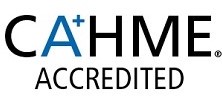The MS in Healthcare Leadership and Management program is designed for working professionals seeking to advance their careers in a rapidly evolving healthcare landscape. With flexible course options—evening on-campus classes or many online offerings—students can tailor their schedules to balance work, life, and study.
The curriculum includes artificial intelligence in healthcare, featuring a dedicated AI course that equips students with the skills needed to thrive in a tech-driven industry. While prior experience in healthcare is beneficial, it is not required for admission.
Students are encouraged to consult the UT Dallas Graduate Catalog for the most current curriculum and course details.
Degree Plan Highlights
“SCH” indicates “Semester Credit Hours.”
27SCH
Core Courses*
27 semester credit hours in healthcare-focused core business classes
Prerequisite*
MAS 6102 Professional Development
4Tracks
Tracks are for informational and guidance purposes only and do not appear on your degree. You may switch from one track to another as long as you follow our degree plan. When you are not able to strictly follow one of the first (4) specialty tracks listed below, you should make sure that you, at a minimum, meet the criteria of the Healthcare Leadership and Management degree. All tracks include nine core courses and three electives. Contact the program manager for customized degree plans.
4 Specialty Tracks
Core Courses – 27 semester credit hours Elective Courses – 9 semester credit hours
- HMGT 6323 MIS 6317 Healthcare Informatics
- HMGT 6327 MIS 6381 Electronic Health Records Applications
- HMGT 6334 MIS 6324 Healthcare Analytics
- OPRE 6301 SYSM 6303 Statistics and Data Analysis (Pre-Req for Healthcare Analytics)
Students desiring an internal auditing career with a healthcare provider organization should consider the following courses:
Core Courses – 27 semester credit hours Elective Courses – 9 semester credit hours
- HMGT 6336 Information Technology Audit and Risk Management
- HMGT 6380 Internal Audit
- HMGT 6393 Advanced Auditing
Core Courses – 27 semester credit hours Elective Courses – 9 semester credit hours
Earn Academic Certificate in Six Sigma and Beyond Yellow Belt
- HMGT 6320 The American Healthcare System
- HMGT 6321 Strategic Leadership of Healthcare Organizations
- HMGT 6323 Healthcare Informatics
- HMGT 6332 Quality Improvement in Healthcare – Six Sigma and Beyond
Earn Professional Certificate in Six Sigma and Beyond Green Belt
- OPRE 6332 Spreadsheet Modeling and Analytics
For students desiring a career in supply chain management.
Core Courses – 27 semester credit hours Elective Courses – 9 semester credit hours
- HMGT 6325 Healthcare Operations Management
- OPRE 6301 Statistics and Data Analysis
- OPRE 6332 Spreadsheet Modeling and Analytics
- OPRE 6362 Project Management in Engineering and Operations
- OPRE 6371 Purchasing, Sourcing and Contract Management
Certificates
The graduate certificate in Healthcare IT emphasizes practical concepts and hands-on experience, essential to professional careers in the Healthcare IT industry. Technical skills, such as the utilization of electronic medical records (EMR) software such as Epic, are built into the certificate program. The learning outcomes for the program include the following:
- Identify and evaluate the types of information systems prevalent in healthcare organizations.
- Utilize hands-on, practice-oriented opportunities to learn the core components of clinical information systems used by major healthcare providers in the United States.
- Formulate a conceptual understanding of healthcare analytics and decision-making, in addition to developing technical skills in business intelligence and prescriptive analytics using decision analysis.
Requirements
Students must maintain a minimum 3.0 Cumulative GPA to be in good academic standing with the university AND also a minimum 3.0 GPA in Basic Core Courses (check degree plan for list), for the degree, and overall in order to graduate with certificates. All courses for a certificate must be completed within 72 months.
- HMGT 6323 Healthcare Informatics
- HMGT 6327 Electronic Health Records Applications
- HMGT 6334 Healthcare Analytics*
Please see the current graduate course catalog for course descriptions, course prerequisites and other information.
Degree-Seeking Students and Certificate-Seeking Students
Current degree-seeking graduate students are eligible but still must formally apply to the Healthcare IT Certificate Program. Academic certificate programs follow the same application and admission processes as graduate degree programs. All dates and deadlines can be located in the UTD Academic Calendar.
Non-degree seeking students can apply as a new student to the Healthcare IT Certificate Program using the JSOM admission website. Please note that non-degree seeking students are not typically eligible for financial aid. Please see the UTD Bursar webpage for information regarding tuition and fees.
Application Process
Current UTD Students
- Even if you are currently enrolled in a degree-seeking program at UTD, you must submit a separate UTD graduate application for the certificate program. Regular deadlines apply. For application instructions and to apply, visit the UT Dallas Steps to Graduate page.
- Note that current UTD students are exempt from the following parts of the graduate application:
- Application fee
- Recommendation letters
- GRE/GMAT test scores
- Once you are offered admission, you must accept your admission to the certificate program in Galaxy.
Not Currently Enrolled at UT Dallas
- Applicants must submit a UTD graduate application. For information regarding application components, deadlines and fees, visit the UTD Graduate Admission webpage.
Cost
- Texas residents can expect to pay approximately $11,750 in tuition and fees (assuming 2 courses per term for 2 terms) to complete four classes. Please see the UTD Bursar webpage for information regarding tuition and fees.
- Please note that non-degree seeking students are typically not eligible for financial aid.
Graduation
- At the beginning of the semester in when a student intends to graduate from the certificate program, they should email Amye.Broyles@utdallas.edu or Keith.Thurgood@utdallas.edu with this information to be made eligible to apply for graduation. Students should then submit their application for graduation within the regular deadlines.
- Once the semester is complete, the registrar will audit on the student record. If all requirements have been met, the student will receive the certificate in the mail 6-8 weeks after the semester concludes.
- Please note, if you apply to graduate from the certificate program during a semester in which you are not enrolled in any classes, you will be charged a $100 absentia fee at the end of the semester.
Forms and Deadlines
Forms
Intent to graduate students – apply for graduation in Galaxy with the information found above under the Graduation portion and email Amye.Broyles@utdallas.edu or Keith.Thurgood@utdallas.edu with your intent graduate the program.
Deadlines
Graduate Certificate Deadlines for U.S. Citizens and International Applicants are available on the UT Dallas Deadlines page.
Lean Six Sigma is a framework used to improve quality by focusing on re-engineering the processes involved in delivering a product or service. The Six Sigma concept was introduced in the mid-1980s to improve manufacturing processes, and it has evolved over many decades. Lean Six Sigma has become popular in the service sector and has increasingly been applied to improve the quality of healthcare processes and reduce overall costs.
Admission Requirement
Students currently enrolled in the Master of Science in Healthcare Leadership and Management program are eligible but still must formally apply to the Yellow Belt Certificate Program. Academic certificate programs follow the same application and admission processes as graduate degree programs. All dates and deadlines can be located in the UTD Academic Calendar.
Students must maintain a minimum 3.0 Cumulative GPA to be in good academic standing with the university AND also a minimum 3.0 GPA in Basic Core Courses (check degree plan for list), for the degree, and overall in order to graduate with certificates. All courses for a certificate must be completed within 72 months.
- HMGT 6320 The American Healthcare System
- HMGT 6321 Strategic Leadership of Healthcare Organizations
- HMGT 6323 Healthcare Informatics
- HMGT 6332 Quality Improvement in Healthcare – Six Sigma and Beyond
Please see the current graduate course catalog for course descriptions, course prerequisites and other information.
Degree-Seeking Students
Current degree-seeking graduate students are eligible but still must formally apply for the Lean Six Sigma in Healthcare Quality Yellow Belt Certificate. Academic certificate programs follow the same application and admission processes as graduate degree programs. All dates and deadlines can be located in the UTD Academic Calendar.
Application Process
Current UTD Students
- Even if you are currently enrolled in a degree-seeking program at UTD, you must submit a separate UTD graduate application for the certificate program. Regular deadlines apply. For application instructions and to apply, visit the UT Dallas Steps to Graduate page.
- Note that current UTD students are exempt from the following parts of the graduate application:
- Application fee
- Recommendation letters
- GRE/GMAT test scores
- Once you are offered admission, you must accept your admission to the certificate program in Galaxy.
Cost
Texas residents can expect to pay approximately $11,750 in tuition and fees (assuming two courses per term for two terms) to complete four classes. Please see the UTD Bursar webpage for information regarding tuition and fees.
Graduation
- At the beginning of the semester in when a student intends to graduate from the certificate program, they should email Amye.Broyles@utdallas.edu or Keith.Thurgood@utdallas.edu with this information to be made eligible to apply for graduation. Students should then submit their application for graduation within the regular deadlines.
- Once the semester is complete, the registrar will audit the student record. If all requirements have been met, the student will receive the certificate in the mail 6-8 weeks after the semester concludes.
- Please note that if you apply to graduate from the certificate program during a semester in which you are not enrolled in any classes, you will be charged a $100 absentia fee at the end of the semester.
Forms and Deadlines
Forms
Apply NowIntent to graduate students – apply for graduation in Galaxy with the information found above under the “Graduation” portion and email Amye.Broyles@utdallas.edu or Keith.Thurgood@utdallas.edu with your intent to graduate from the program.
Deadlines
Graduate Certificate Deadlines for U.S. Citizens and International Applicants are available on the UT Dallas Deadlines page.
After completing an Academic Lean Six Sigma Yellow Belt certificate from 4 core courses in the master’s program, use an elective for the Professional Green Belt certificate. UT Dallas also offers Professional Certificates in the Brown and Black belt training. The Green Belt Professional certificate includes one course (OPRE 6364) and an industry project. The project will likely span two terms. Connect with Dr. Kannan Ramanathan to declare your interest in the Lean Six Sigma Green Belt Professional Certificate.
Admission Requirement
Students currently enrolled in the Master of Science in Healthcare Leadership and Management program are eligible but still must formally apply to the Green Belt Certificate Program. Professional certificate programs follow the same application and admission processes as graduate degree programs. All dates and deadlines can be located in the UTD Academic Calendar.
Students must maintain a minimum 3.0 Cumulative GPA to be in good academic standing with the university AND also a minimum 3.0 GPA in Basic Core Courses (check degree plan for list), for the degree, and overall in order to graduate with certificates. All courses for a certificate must be completed within 72 months.
- OPRE 6364 Lean Six Sigma
Please see the current graduate course catalog for course descriptions, course prerequisites and other information.
Degree-Seeking Students
Current degree-seeking graduate students are eligible but still must formally apply for the Lean Six Sigma in Healthcare Quality Green Belt Certificate. Professional certificate programs follow the same application and admission processes as graduate degree programs. All dates and deadlines can be located in the UTD Academic Calendar.
Application Process
Current UTD Students
- Even if you are currently enrolled in a degree-seeking program at UTD, you must submit a separate UTD graduate application for the certificate program. Regular deadlines apply. For application instructions and to apply, visit the UT Dallas Steps to Graduate page.
- Note that current UTD students are exempt from the following parts of the graduate application:
- Application fee
- Recommendation letters
- GRE/GMAT test scores
- Once you are offered admission, you must accept your admission to the certificate program in Galaxy.
Cost
Texas residents can expect to pay approximately $2,938 in tuition and fees (assuming 1 courses per term for 1 terms) to complete two classes. Please see the UTD Bursar webpage for information regarding tuition and fees.
Graduation
- At the beginning of the semester in when a student intends to graduate from the certificate program, they should email Amye.Broyles@utdallas.edu or Keith.Thurgood@utdallas.edu with this information to be made eligible to apply for graduation. Students should then submit their application for graduation within the regular deadlines.
- Once the semester is complete, the registrar will audit the student record. If all requirements have been met, the student will receive the certificate in the mail 6-8 weeks after the semester concludes.
- Please note that if you apply to graduate from the certificate program during a semester in which you are not enrolled in any classes, you will be charged a $100 absentia fee at the end of the semester.
Forms and Deadlines
Forms
Apply NowIntent to graduate students – apply for graduation in Galaxy with the information found above under the “Graduation” portion and email Amye.Broyles@utdallas.edu or Keith.Thurgood@utdallas.edu with your intent to graduate from the program.
Deadlines
Graduate Certificate Deadlines for U.S. Citizens and International Applicants are available on the UT Dallas Deadlines page.
For undergraduate students who desire to earn a master’s degree while finishing an undergraduate degree in Healthcare Management. Fast Track students will need to complete MATH 1325, ACCT 2302, OPRE 3360, BCOM 3300 and HMGT 3311. Plus, the volunteer and internship requirement.
UG Course Requirements – complete requirements and apply
MS Core Courses – 9 core courses (27 hours)
HMGT 6311 Healthcare Financial and Operations Accounting
HMGT 6320 The American Healthcare System
HMGT 6321 Strategic Leadership of Healthcare Organizations
HMGT 6323 Healthcare Informatics
HMGT 6324 Healthcare Negotiation and Dispute Resolution
HMGT 6325 Healthcare Operations Management
HMGT 6330 Healthcare Law, Policy and Regulation
HMGT 6331 Healthcare Economics
HMGT 6332 Quality Improvement in Healthcare: Six Sigma and Beyond
APPLICATIONS WILL BE ACCEPTED ON:
- May 1st for the Fall Semesters
- April 1st for the Summer Semesters
- November 1st for the Spring Semesters
Please use the following flowchart to run your Orion Audit: (You need at least 15 hours at UTD and have completed 36 core UG courses.)
- GALAXY –> My Academic tile –>
- My Degree Audit –> Academic Requirements, click on ‘View my Advisement Report’ to run the report
*These details apply to the most recent catalog. Catalogs from previous years are available online at the main UT Dallas Catalog page. Please contact the JSOM Academic Advising Office if you have further questions. See catalog for course requirements.










